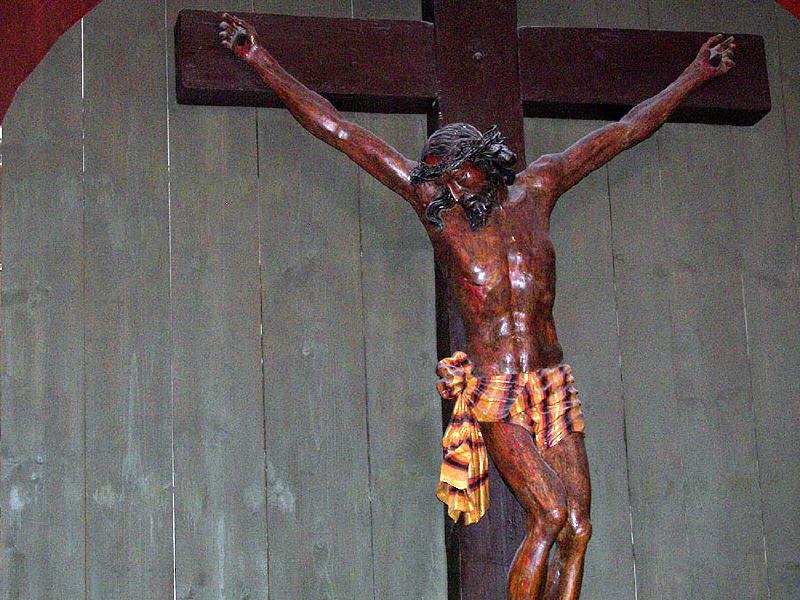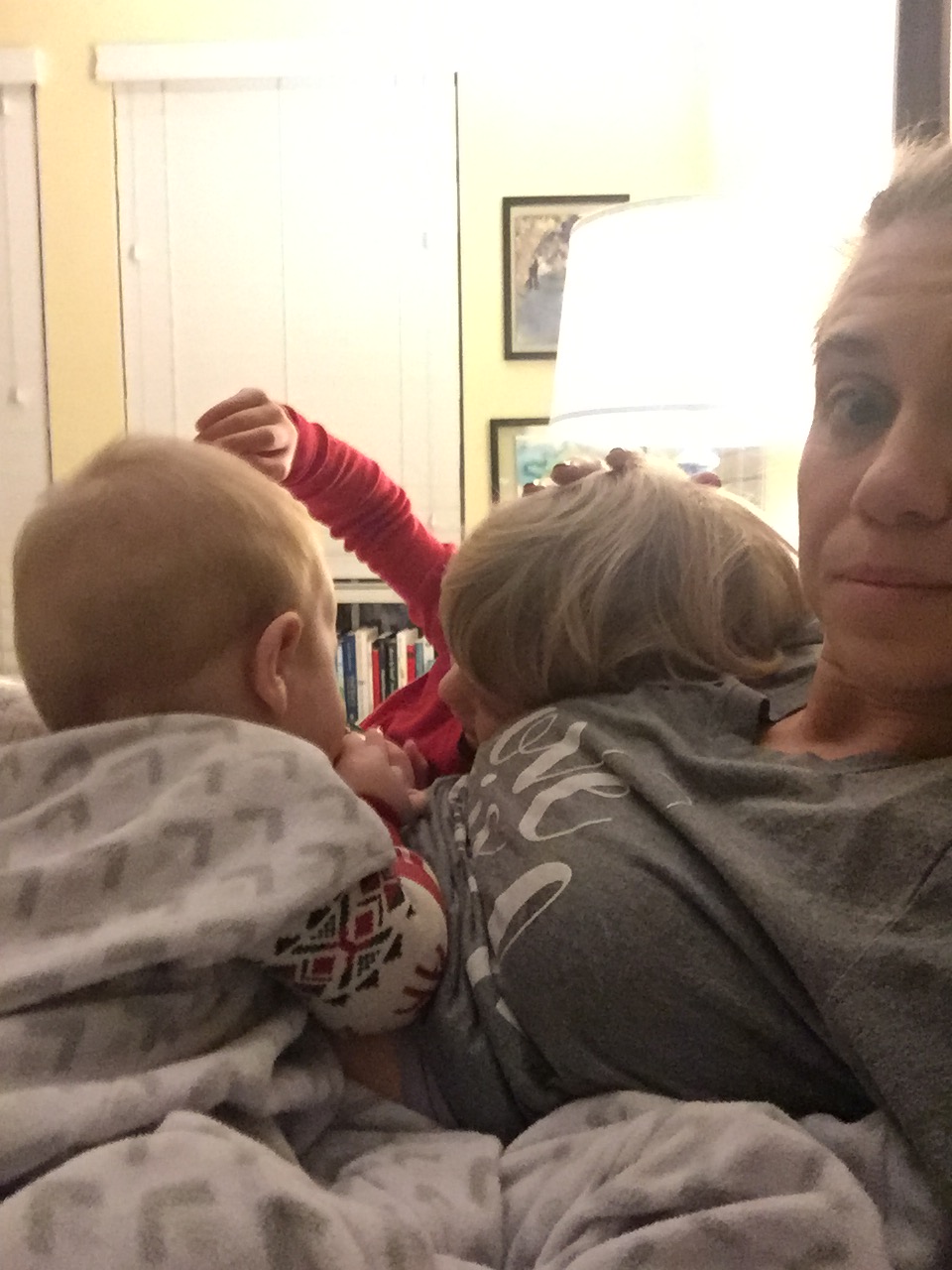Sermon for the 4th Sunday of Easter; Episcopal Church of the Ascension, Lafayette, Louisiana
Imagine with me for a moment what we might experience in the eschaton.
It’s a big word, a theology-nerd kind of word, but brothers and sisters, it is also the orientation of our whole lives as Christians, and so eschaton is a word we ought to know and even a word we would do well to dwell on. Eschaton is a greek word that means “end.” It speaks of the last things, the ultimate things of God, the life together forever beyond here and now. That time when all things will be set right and every tear will be dried and peace will reign everywhere.
That’s the eschaton. That’s heaven. What do you imagine it will be like? Who will you see there? What do you desire to do first? Try on the new crown made for your eternity? Bow down and kiss Jesus’ feet? Lay eyes again on your loved ones? Hug the necks of the people you admired in life but perhaps never even got to meet? There’s a story of a girl who asked a famous theologian if her dog would be present in heaven. He answered that if she needed that dog there in order for it to be heaven, then the dog would be just where she needed it.
So, friends, I have good news, and bad news, and then some more good news. Are you ready?
The good news is that for God, time isn’t linear, that even though for us, we experience one moment and then the next, and then the one after that, just one at time marching on till we die, God’s experience of time is bigger, more layered, to us – all mixed up. So even here and now, we humans, because of God dwelling in us, get moments and tastes of the eschaton, of eternity, of heaven. Perhaps you’ve had one or two. I remember the Sunday after my grandpa died; I had been there at his bedside and given him last rites an hour before he passed. He was surrounded by his four kids and his wife when he died on a snowy Monday morning in Minnesota. And six days later I was standing at the marble altar and as I led the congregation in the Lord’s Prayer right before communion, I heard my grandpa’s voice. I heard his familiar tones along with all the other voices, praying those sacred words. For a second it felt like I was among all the saints, standing in front of the throne of God, all of us worshiping and praying together. It was a time-outside-of-time moment. So the good news, brothers and sisters, is that though we find time to be a plodding march of present moments, sometimes eternity breaks in for a glorious span and reminds us that we made for more than common chronology. Heaven breaks in here and now, too. We are so privileged as humans, as temples of the living God, to experience such moments.
So here’s the bad news.
Jesus tells us in today’s Gospel lesson that he is shepherd of other sheep too. Sheep that “do not belong to this fold.” Jesus tells us that all the sheep of all his folds will be brought together at the eschaton, “I must bring them also,” he says. Everybody will be together for eternity in the great sheepfold in the sky.
But I wonder if we’ll like those people. I sort of worry about the kind of people Jesus will let in to heaven. Will they, like sheep, be stinky? Will they, like sheep, be noisy? Will they, like real sheep, be a little thick in the head and exasperating?
I can feel my body tensing up just saying these words! What will it mean, brothers and sisters, if Jesus is the shepherd of people who I think are not behaving well, or who have the wrong idea about what it means to follow the Good Shepherd, or who just don’t respect him the way he ought to be revered?
The bad news is that we don’t get to choose. We don’t get to say who gets into heaven and who Jesus the Good Shepherd welcomes. We don’t even get to say here and now who God wants to be near to his presence. I suspect that there are people in this room today who don’t behave to believe the way we think they should, and even more there are people who God loves who aren’t here, but will be in the eschaton. But that all leads me to more good news. And that’s where we want to end up today.
The good news is that we can start living with and loving those other sheep even now. We can get a leg up on heaven and have even more of those delicious moments I described at the beginning of the sermon when we seek out sheep of other folds, especially those that rub us the wrong way.
The year between undergrad and divinity school, when I was confirmed in the Episcopal Church, I led morning prayer once a week at a tiny little parish in Durham, North Carolina. Part of the requirement for the confirmation class was to serve the poor every week, too, and you know how I love efficiency, so I’d lead prayer on Wednesday mornings, and then stay after for the homeless breakfast they served every day of the week. The uncomfortable thing about the breakfast was that we were all expected to cook together, and then to sit down and eat together too. We had to sit next to the stinky, often mentally-ill, most likely male, people-whose-skin-tone-didn’t-match-mine. It was a different fold all together than my Duke University office with a window overlooking the iconic chapel.
But let me tell you what happened to my heart that year. There was a man named Keith who I first met as a freshman in college. He begged at the highway exit to campus, and I always dutifully locked my doors as I came to the stoplight. I avoided eye contact. His sign said, “Hi, I’m Keith. I’m homeless. Please help.”
Four years later, I sat across from Keith while we both ate plates of grits and hard-boiled eggs. I looked him in the eye. I passed the salt. We ate together and prayed together. I met Jesus again through Keith and through Slim and through Ethan, with whom I did the dishes. Jesus promises to be found among those who are hungry and thirsty and in prison. He has other sheep not of this fold.
I’m sure Honey would be thrilled for an uptick in hands for outreach ministry, and perhaps that’s the call that Jesus has laid on your heart this morning. But I have another challenge, too. What about the person who dares to show up even here, under this roof with you, but that you complain about? What about the people in your life who are exasperating, who don’t behave the way you think they ought to, who might even be noisy when you think they ought to be silent? I wonder if God in Jesus Christ draws near to those people, and whether he might be calling you to graciously, lovingly, bearing-with-one-another-ly draw near to them, love them for who they are right now, too. Amen.



